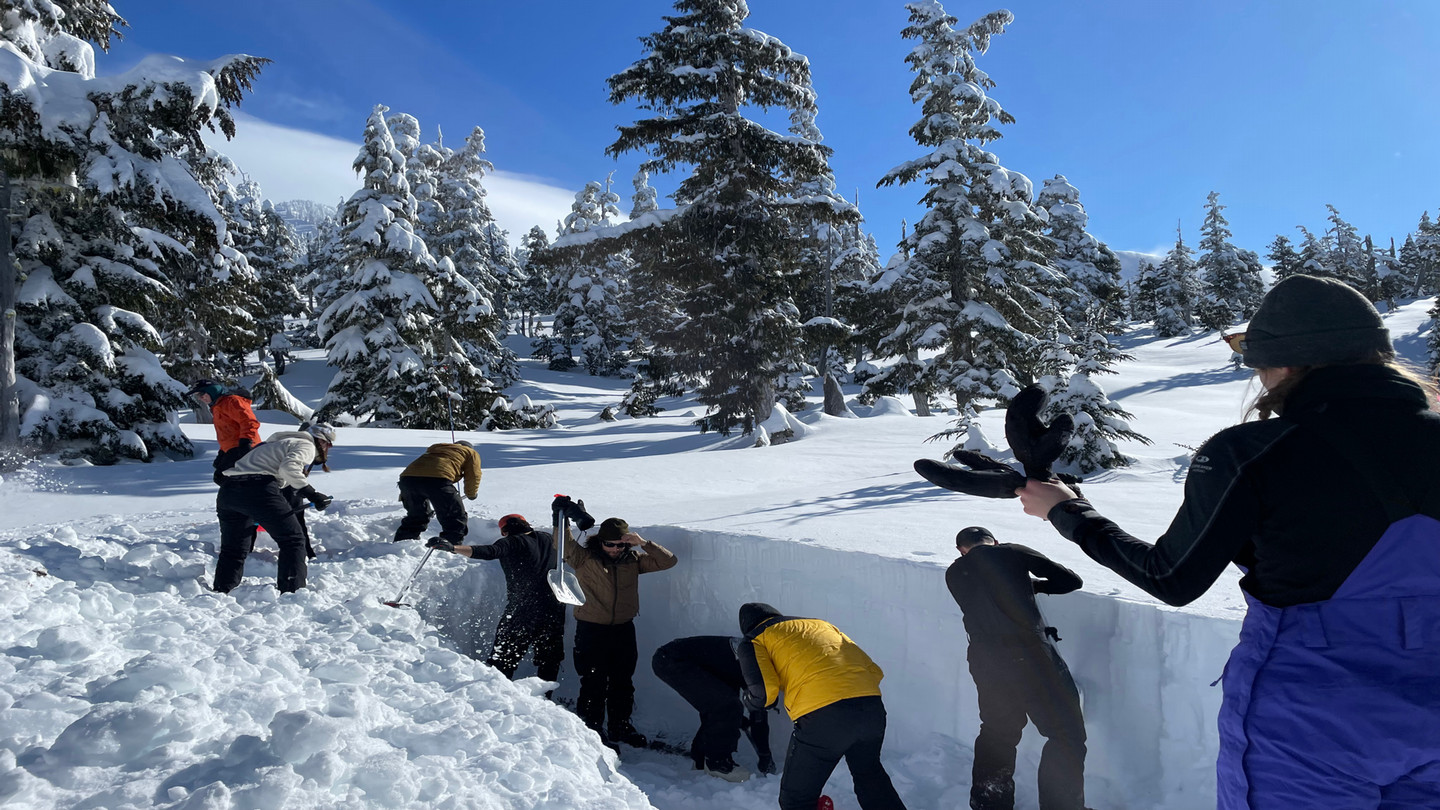Mountain meteorology field school

January 2nd- 9th, 2026
Are you interested in spending your reading break skiing and snowshoeing on Mount Cain for course credit? The mountain meteorology field school is based on Mount Cain, Namgis First Nation Territory on Northern Vancouver Island. This field school is a 7-day course that runs during spring reading break (February).
This field school is primarily outdoors. Some excursions will be physically demanding. No need for previous ski or snowshoe experience. Just have a positive attitude and a willingness to try new things outdoors!
Course description
GEOG 313: Field Studies in Mountain Meteorology
Instructor: Shannon Fargey
1.5 credits
This course is designed to provide students with an immersive opportunity to understand the physical processes of meteorological phenomena in mountain environments. Measuring and monitoring of snowpack, extreme weather, and climate in coastal mountain ranges will be prominent course themes, along with challenges associated with alpine tourism operations due to weather and climate extremes and hazards.
Eligibility
- Students must have a minimum second-year standing, preferably third-year standing or higher.
- Preference will be given to students who have completed or are enrolled in GEOG 272 (Introduction to Climatology and Hydrology).
- This field school is primarily outdoors. It will be physically demanding. Applicants must mention if they have any accessibility needs that may affect their ability to participate in these activities.
- We ask applicants to answer some questions. This will help us assess their fit and what they could contribute to the learning and community-engaged experience.
- Applications will be evaluated in the order in which they are received. Apply early.
How to apply
Applications are closed for the 2026 field school.
Contact geography@uvic.ca if you have any questions.
Fees
Students pay regular UVic tuition plus field school fees. Field school fees can be paid by cheque, money order or cash only. Cheques and money orders should be made payable to the University of Victoria.
Payment can be dropped off at the geography main office (David Turpin B203) or mailed (cheques and money orders only; do not mail cash).
Field school fees
- $100 deposit due with application, submit by October 10th, 2025
- $600 due on acceptance
Field school fees include:
- accommodation for the week
- meals for the week
- transportation to and from Mount Cain
- ski lift tickets for 2 days
Field school fees do not include:
- tuition
- rental of outdoor equipment such as skis, snowboards or snowshoes
- other expenses such as any personal gear required/recommended for the course (packing/equipment list provided upon acceptance)
The field school fees have been subsidized by the Faculty of Social Sciences. There may be additional funding through scholarships and financial aid.
